For O'Bio, it is all hands on deck these weeks. The company has started picking its blueberries since Monday. "Blueberries are our main product towards the trade, so with the new picking, the start of the peak season up to and including August has been given," Isabel Decrock of O'Bio, which, in addition to fresh fruit, also offers some 80 processed products from its own cultivation, and partly purchase, explains.
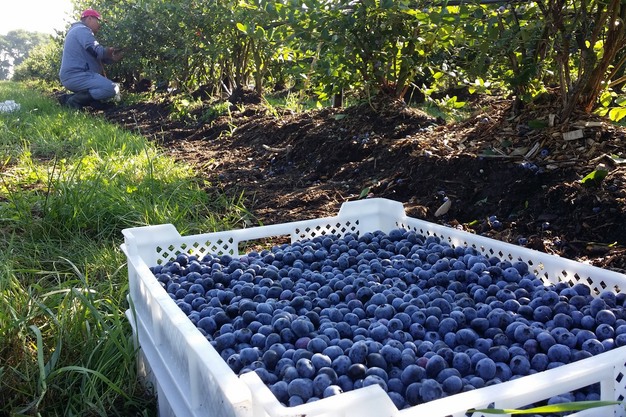
O'Bio started in 1983 in Wielsbeke, Flanders, and specialises in growing organic berries. "Here we started growing on a small scale, but have since grown to a good 30 hectares of mainly organic blueberries, but also to a smaller extent raspberries, prickly pears, blackcurrants, etc. We sell the other small fruits mainly through our self-picking garden, where people can pick their own fruit from mid-June onwards, initially once a week but now all week long. The fresh blueberries go mainly to fruit traders. These come fresh from the field, we sort them ourselves and then deliver them to BelOrta or Biofresh," Isabel explains.
Taking advantage of rainfall
And so with the arrival of the sun, the new season has kicked off again at the organic growing company, which, she says, looks positive. "On Monday, we started the first picking of the Duke variety and we will eventually continue until about mid or late August. It may extend to mid-September, but this depends on how much we can pick. This is because we end up with the Aurora variety and it does need some sun and high temperatures to pick for sale to the trade. So this varies from season to season."
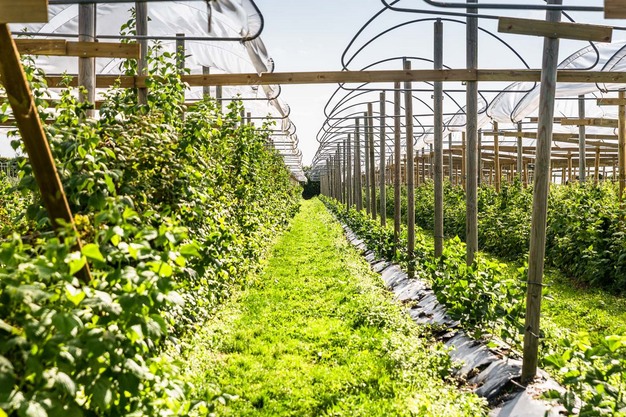
Overall, though, Isabel speaks of a nice, new crop. "There have of course been many problems with the heavy rainfall and wetness in Belgium, but for us this has not actually been detrimental. On the contrary, blueberries need a huge amount of water, so we have now had to give less extra water ourselves. Then you always have to wait and see if the brix value is at a good level, after which you can decide when to start picking. We were already assuming this week, but it can be different for a few days or even hours. So this season we decided to start earlier anyway. The volumes here will also be similar to other years. Maybe a bit more, but we will only know with the final effective picking results. There are many factors that influence this."
Import competition
Looking at the demand side, there does still appear to be stiff competition from abroad. "It is about organic blueberries, at the moment, mainly from Portugal. In addition, the first Polish blueberries are also coming back onto the market now. The challenge here is mainly in pricing. Whereas we are tied to a lot more expensive wage rates, they can pick much cheaper, which does not always make it easy to compete."
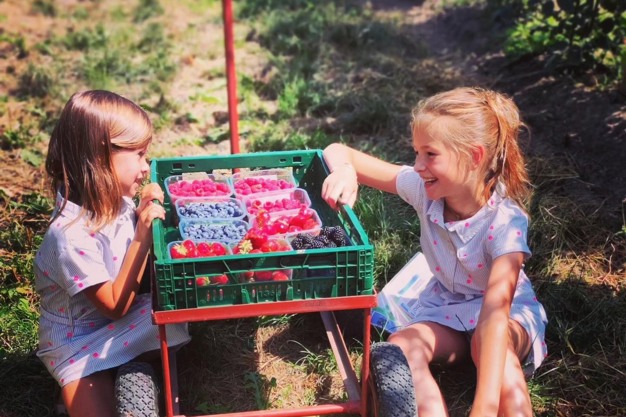
"However, I think we can stand out taste-wise," Isabel continued. "Moreover, we naturally work with a sustainable product, which certainly the Belgian consumer is increasingly aware of. Local is trending, so we see that demand does persist. For example, there are a lot of consumers, especially in health food shops, who are really waiting for Belgian organic blueberries to arrive again."
"In addition, the organic story, especially in blueberries, also appeals to consumers. With larger fruit, you remove the peel first or you wash the fruit, but the sensitivities of plant protection products still have more of a hold on a smaller, manageable product like blueberries. Then people are more likely to opt for the organic offer, because you eat everything as a snack with peel and all. Certainly, the conscious buyer is then willing to pay the extra price that sometimes comes with it."
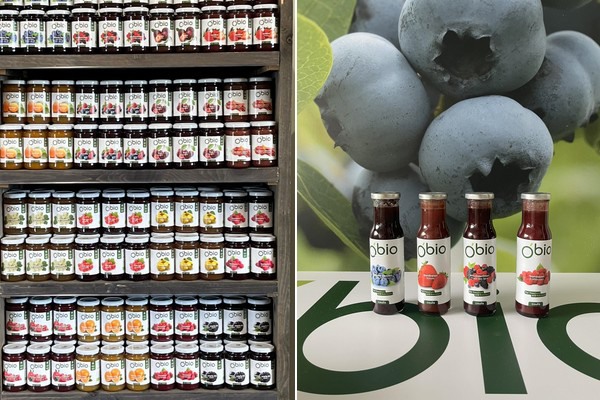
Rebranding of own processed products
Besides growing, O'Bio also engages in processing its own fruit. "We have a farm where we have about 80 or so by-products. These range from jams, jellies and marmalades in about 20 flavours, including old fruits such as the prickly pear, but also fruit spreads (jams or fruit spread), coulis, smoothies. We also have tea drinks, sweeteners, praline spread etc. We like to keep ourselves busy," laughs Isabel.
"Moreover, we have a wide variety of pure juices, with which we are very well known in Belgium. Here, we use fruit from mainly our own cultivation, but for exotic additions we occasionally have to look at sourcing other organic fruit. Moreover, we continue to grow steadily, so we sometimes have to buy in to meet demand. In blueberries, we can meet the volumes, but in the other small fruits we have to look externally." For all these products, the company has now rebranded. "We decided to rebrand the products and the first of these are rolling off the belt now, after which we expect to offer them in shops at the end of the month as well. We are happy with the developments we are making in this and do expect to make strides in the coming years."
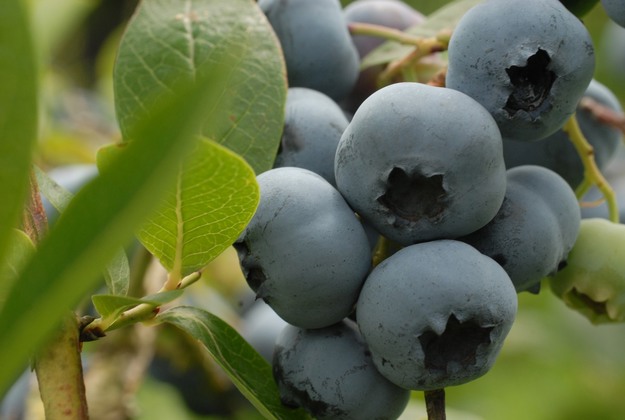
For more information:
Isabel Decrock
O'Bio
Driekoningenstraat 36a,
8710 Wielsbeke, Belgium
Tel: +32 (0)56 61 61 61
info@o-bio.be
www.o-bio.be
